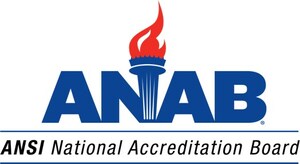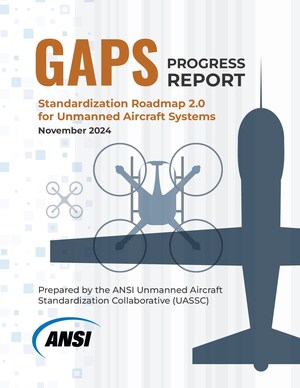NEW YORK, June 8, 2018 /PRNewswire-USNewswire/ -- To recognize the importance of accreditation in assuring quality and safety of products, systems, services, and personnel around the world, the American National Standards Institute (ANSI) has released a World Accreditation Day 2018 webpage of resources focused on the theme, "How Accreditation Delivers a Safer World." An initiative of the International Accreditation Forum (IAF) and the International Laboratory Accreditation Cooperative (ILAC), World Accreditation Day is held annually on June 9 to honor the important role accreditation plays in the global standards and conformance community.
Why Do We Need Accreditation?
Accreditation is the common link that helps assure safety across all aspects of our lives, from the air that we breathe to the food that we consume, and the infrastructure that supports billions of lives across the globe. As the official World Accreditation Day video explains, products and services are evaluated against a standard code of practice by Conformity Assessment Bodies, or CABs, which have the responsibility to check that products and services are safe to use. CABs are evaluated by Accreditation Bodies (ABs) against international standards agreed by their peers, creating a global infrastructure to support health and safety, and to ensure that tested products and services can be accepted everywhere—with equal confidence.
How ANSI Helps Deliver a Safer World through Accreditation
ANSI's 2018 World Accreditation Day webpage illustrates how ANSI accreditation helps assure the quality and safety of food products, systems, services, and personnel. ANSI's accreditation programs operate in accordance with international guidelines and have been verified by government and peer review assessments.
Just recently, the U.S. FDA recognized ANSI as an accreditation body under the Food Safety Modernization Act and its implementing regulations. This is significant, as food safety scheme owners rely on ANSI accreditation to foster consumer confidence. Increasingly, federal, state, and local authorities rely on ANSI accreditation to demonstrate value and assure competency —not just for food safety but for many important public priorities.
The Institute offers a broad portfolio of third-party accreditation services based on international standards including programs for product certification bodies, personnel certification bodies, education and training certificate-issuing bodies, greenhouse gas validation and verification bodies, and through its related organization, the ANSI-ASQ National Accreditation Board (ANAB), management systems certification bodies, calibration and testing laboratories, inspection bodies, reference material producers, proficiency test providers, forensic testing laboratories and inspection agencies, and medical laboratories and medical examiners.
Learn more about ANSI's accreditation work on the ANSI accreditation webpage, which features informational videos, workshops, recent news, and an overview of ANSI programs.
About ANSI
The American National Standards Institute (ANSI) is a private non-profit organization whose mission is to enhance U.S. global competitiveness and the American quality of life by promoting, facilitating, and safeguarding the integrity of the voluntary standardization and conformity assessment system. Its membership is comprised of businesses, professional societies and trade associations, standards developers, government agencies, and consumer and labor organizations.
The Institute represents and serves the diverse interests of more than 270,000 companies and organizations and 30 million professionals worldwide. ANSI is the official U.S. representative to the International Organization for Standardization (ISO) and, via the U.S. National Committee, the International Electrotechnical Commission (IEC). For more information, visit www.ansi.org.
SOURCE American National Standards Institute
Related Links
WANT YOUR COMPANY'S NEWS FEATURED ON PRNEWSWIRE.COM?
Newsrooms &
Influencers
Digital Media
Outlets
Journalists
Opted In




Share this article